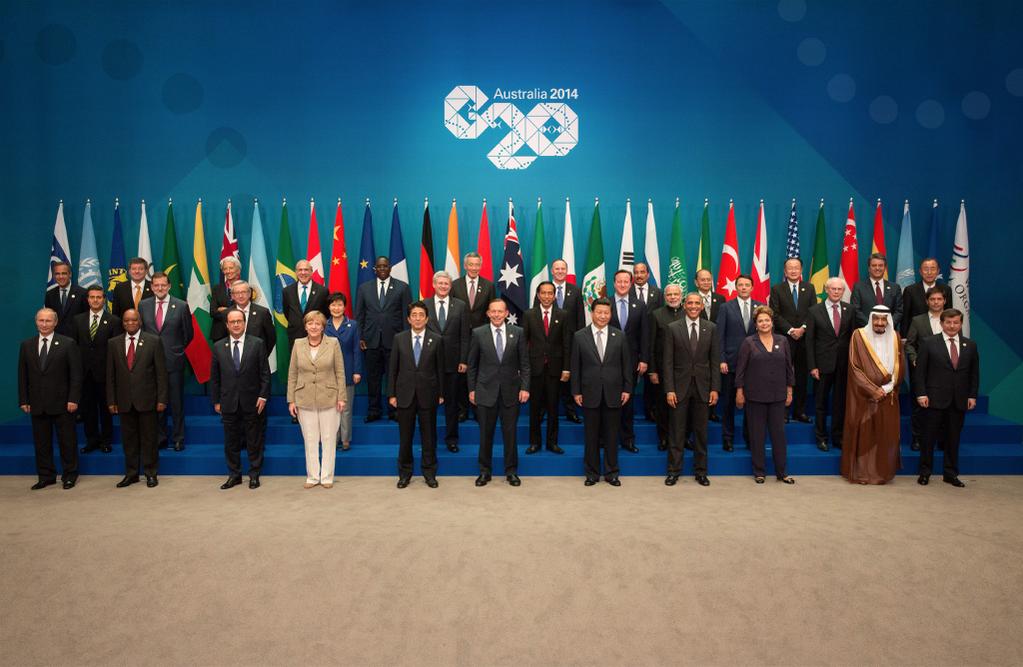 On the evidence of APEC, the East Asia Summit and the G20, anyone who decries summitry as a waste of time, talent and money either has a narrow view of the world or is extremely hard to please. To take just one of the players—but what a player—Xi Jinping in the space of a week has deeply delighted Oz and deeply shocked the Abbott government.
On the evidence of APEC, the East Asia Summit and the G20, anyone who decries summitry as a waste of time, talent and money either has a narrow view of the world or is extremely hard to please. To take just one of the players—but what a player—Xi Jinping in the space of a week has deeply delighted Oz and deeply shocked the Abbott government.
The delight was the consummation of a free trade deal a decade in the making. The shock was a climate change agreement with the US in which Canberra was surprised by Xi and blindsided by Obama. What more can you ask from summitry? Thrills, spills, twists and dramatic plot shifts—and this column isn’t even going near Putin.
The successive summits hosted by China, ASEAN and Australia produced a blizzard of images and ideas, driven by power, policy and personality. Tracking power is about the trend lines and how the narratives are sold.
The intense burst of summitry offers all sorts of stories. Come on a quick dance through some bits that matter to Oz. This tour is a communiqué-free frolic. Not to dismiss the formalities—merely that power flows from summitry in lots of ways:
- The G2 delivers. Obama and Xi changed the terms of one of the great arguments of our time. The Republican Congress hates it, but an incoming Republican president will grab a G2 that can work. And if it’s President Hillary….
- Visions of Asia’s future have been offered to the Australian Parliament, in the addresses by Japan’s leader in July and this week by China and India. Add the Brisbane speech by the US President and Australia has a front-row seat for big picture explanations and exhortations. Obama’s rebalance recommitment stands beside Xi’s ‘big guy’ imagery. China’s President noted that many people ‘naturally wonder how the big guy will move and act and be concerned that the big guy may push them around, stand in their way, or even take up their place.’ As I heard this, the association that came to mind was the diatribe China’s Foreign Minister directed at ASEAN in Hanoi in 2010: ‘China is a big country. And you are all small countries.’ Xi, wasn’t making threats, but offering an image of peace and prosperity—or a big piece of prosperity. The big guy has a big taste for what Oz is selling.
- The Free Trade Agreement signed by China and Australia disappointed some Oz farmers (rice, wheat, sugar and cotton) but in other areas delivered more than even optimists had hoped for. The out-of-the-quarry-and-into-services sentiment was expressed by the Australian Services Roundtable’s Ian Birks, who calls it a sensationally good deal: ‘It’s so far beyond what anyone expected that it looks to me to be more than just a trade deal with Australia but a statement by the Chinese government to the world.’ China’s statement to the world ups the ante in the competing Asian trade negotiations/narratives/visions—one led by the US (the Trans-Pacific Partnership) and the other centred on China (the Regional Comprehensive Economic Partnership). What the big guy has given Oz bilaterally is the basis for a multilateral banquet in the RCEP. The alternative to the TPP just got a big boost from the big guy.
- On the sidelines of the G20, Australia, Japan and the US had their first trilateral leaders’ meeting since Sydney’s 2007 APEC. Tony Abbott had a chat with the big ‘A’ ally and the small ‘a’ ally. Almost as noteworthy was Abbott’s special meeting in Myanmar with the 10 leaders of ASEAN, marking the 40 years of Australia’s dialogue partnership with ASEAN. The big guy was the phantom at both feasts.
- Modi Magic: Here comes India. The magic Modi delivered at the G20 was the settlement with the US—a food stockpile peace clause—giving a breath of life to the World Trade Organisation, the Doha round and the multilateral system. The summit demand for ‘announceables’ can produce real announcements. And while leaders come for the multilateral, they stay to do bilateral business. Australia tries to talk the talk about India as a major foreign policy priority. But Modi’s mere presence in Canberra—the first visit by an Indian PM in decades—injects a lot of India into Australia’s India policy.
Finally, two observations that can go in either the personality or policy categories. First, salute Andrew Robb as the standout can-do minister of the Abbott government. Australia’s Trade Minister performed as promised. In 12 months, he completed bilateral negotiations with South Korea, Japan and China—the three nations that take more than half of Australia’s exports. This column mocked the announcement of that deadline to achieve the three deals as a naive new government skipping into a minefield. Andrew Robb delivered; this columnist eats crow.
The other observation is that China is drilling down into Australia so deeply it has developed a Tasmania policy. Yes, after thrilling Canberra, Xi Jinping headed to the Apple Isle. The big guy gets around.
Graeme Dobell is the ASPI journalist fellow. Image courtesy of Twitter user TonyAbbottMHR.

